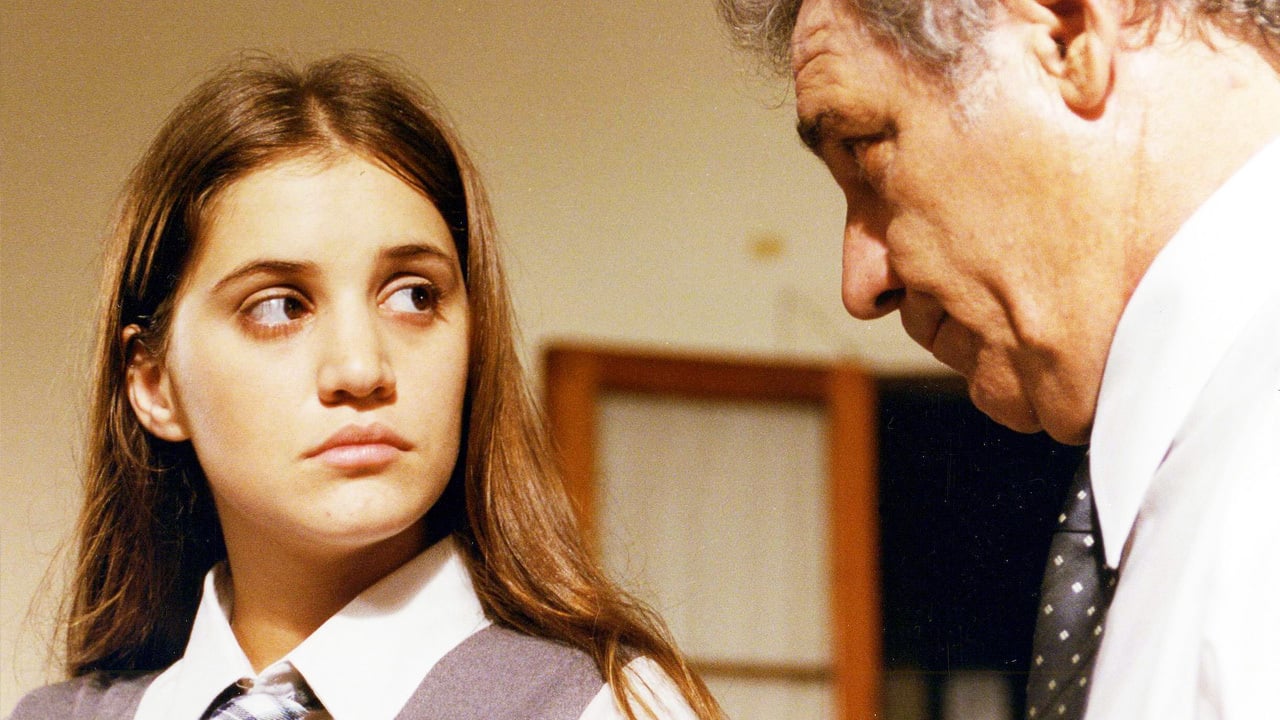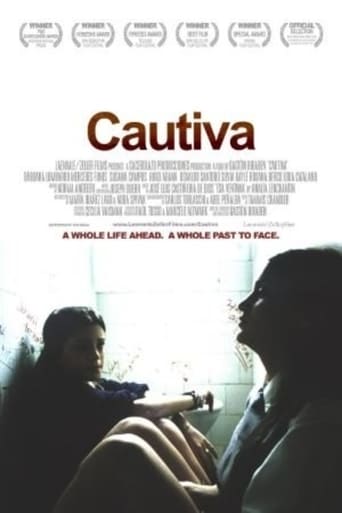

Cautiva (2005)Set in a period about ten years before its release, but dealing with issues of the Argentine dictatorship and disappearances from the late 1970s, this is a remarkably realistic and important look at one girl's astonishing involvement with the worst of it.And if it sometimes is terribly linear in its storytelling, following this girl's realizations one after another (and her emotional burden as it grows and grows), the movie is still so convincing and sad and filled with national (Argentine) guilt it is totally riveting. Anyone interested in the horrors of Latin American dictatorships (left and right wing) and in the victims and survivors, this is a must-see.Anyone else just interested in the plight of a single sixteen year old girl in a whirlwind of suspicions and lies and a few seemingly tender sympathizers, and see her cope and rise above and maybe, in fact, find a small amount of truth for herself, this is also really rewarding. You might find parallels in similar South American films such as "Machuca" but there is also a weird resemblance to many touching holocaust films that center on the plight of children whose identities get changed and whose histories are disrupted. Not to mention the tragedy of parents killed by cruel governments.The filming here is really good but never something you'd notice (except one brief dream scene). What you will notice is the gravity and depth of the lead girl's performance. Barbara Lombardo was only 14 for filming (unlike a lot of movies where older girls play younger parts) and she alone makes the movie poignant and serious.Oddly, this is officially a 2005 movie with its original Spanish title, and yet it gets listed here as "Captive" with a 2004 date. There is a lot left unsaid here, but in a way that's sufficient. It makes you want more.
... View MoreThe 'Dirty War' in Argentina, and the disappearances of radicals that plagued that era, had long and lasting effects on the Argentinean people. In the tradition of 'La Historia Oficial', Cautiva follows one of the affected – in this case, a teenage girl who learns that she is not her parents' child, but in fact one of the disappeared children who was forcefully taken from her parents. The emotional trauma and the process of understanding, accepting, and internalizing this kind of massive shock is convincingly transmitted by the actors and the shooting style. The powerful emotional scenes are handled wonderfully by the Bárbara Lombardo in her debut role. This movie really knocks you for a loop, then knocks the wind out of you – really an emotional roller coaster. Excellent film, overall.
... View MoreThis film tells of a young girl Cristina growing up in Buenos Aires, Argentina. One day her life gets turned upside down when court officials escort her from her school and inform her that she is really Sofía Lombardi, daughter of activists who disappeared during the 70s. From there begins a journey of searching for information about her parents and discovering her true identity. "Captive" complements the film "The Official Story" very well and emphasized the importance of historical memory, both for a country and for an individual. Cristina, like Alicia ("The Official Story"), is blissfully living in ignorance of the truth until someone else brings it to her attention. Both female characters are at first doubtful of the fact that so many people simply "disappeared". Their doubt then turns to belief and surprise that they didn't know earlier.
... View MoreIn the early scenes it is 1993 and Christina Quadri is at her fifteenth birthday party. Christina attends a Catholic school and enjoys all of the privileges of an upper middle class existence until one day she is called from class to meet a federal judge who informs her that, as a result of DNA testing, it has been determined that her real name is Sofia Lombardi and those who raised her from birth are not her real parents. There are several elements in this film that raise it above the typical entry in the "young person searching for their real parents" genre. For one thing, Christina/Sofia's plight is not the result of such things as mistaken identities at birth, adoption, or insemination by way of a sperm bank, but rather a willful act of what amounts to a government-approved kidnapping. For another thing, Sofia's parents did not die in some accident or suffer some early natural death, but rather were killed as dissidents during the dictatorial rule in the 1976-83 era.The bulk of the film deals with Sofia's coming to terms with her real identity and her search for the grim details of her parents' fate. She is spurred on in her investigative endeavors by her friend Angélica who is in a similar situation. That aspect of the film plays out as a detective story. I wish we could have gotten to know Sofia's real family better than we do so as to better understand her ultimate decision to accept them.Bárbara Lombardo, as Christina/Sofia, is well cast. She has the ability to communicate emotion through facial expression, but is also able to rise to the occasion when venting her frustration and anger in a verbal attack on her would-be parents. The entire cast is good, but I was particularly impressed with Mercedes Funes, who plays Angélica. Funes expertly captures the sadness and defiance of a young woman who has been forced to deal with unpleasant realities and demands to know the truth.There is little doubt about director Gaston Biraben's political intent to expose the malignity and corruption of a repressive regime and it is a testament to his art as a filmmaker, and the power of film-making in general, that he accomplishes his goal by focusing on the personal rather than the historical. As an non-Argentinian this movie encouraged me to do some research and I came away from it with historical knowledge I would otherwise not have had--you cannot say that about many films.
... View More